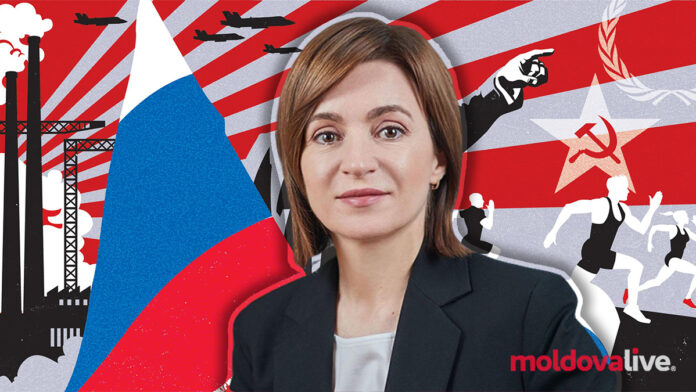In an editorial published in The Economist on May 10, President Maia Sandu expressed her confidence that the Republic of Moldova will not succumb to Moscow’s influence and will continue on its European path. Sandu addressed the ongoing war in Ukraine, the hybrid threats faced by Moldova, and the country’s European aspirations.
Referring to Russia’s ruthless and senseless war against Ukraine, Sandu highlighted that it is presumed to force Moldova and other countries to yield under pressure. However, she firmly stated, “We will not yield. As president, I am encouraged to witness the resilience and perseverance of our people in the face of interconnected crises: the war on our doorstep, Russia’s energy blackmail resulting in inflation, economic recession, and orchestrated protests. Our citizens have remained steadfast, and our partnerships with friends and allies have helped us weather the storm. Moldova is growing stronger. This crisis, I believe, will build, not destroy our country, and set the course for the coming decades.”
Expressing solidarity with Ukraine, Sandu commended the Moldovan people for their open hearts and homes towards hundreds of thousands of refugees fleeing the brutal attacks there. While acknowledging that the devastation in Ukraine is incomparable, she emphasized that the war near Moldova’s borders sends shockwaves that also affect the country. Sandu characterized Russia’s aggression against Ukraine as a military invasion, while its assault on Moldova takes the form of hybrid warfare designed to destabilize and force Moldova, like Ukraine, back into Moscow’s orbit. Sandu, however, declared that this strategy has failed in Ukraine and will not succeed in Moldova. Moldova has held its position for over a year and will continue to do so.
FOR THE MOST IMPORTANT NEWS, SUBSCRIBE TO OUR TELEGRAM CHANNEL!
Sandu outlined Moldova’s fight against hybrid threats through reforms, connections with Romania, and closer ties to the European Union (EU). She emphasized countering disinformation, sanctioning oligarchs, and curbing Russia’s influences through paid protests.
“Those who bet that they could change our perspective made a wrong bet. We set our course long ago, and we will not deviate from the path we are following – the path towards EU accession, peace, democracy, and prosperity,” Sandu wrote.
Highlighting the irreversible nature of Moldova’s movement towards EU membership, Sandu underscored the EU’s role in ensuring peace in most of Europe, fostering social cohesion, democracy, and respect for human rights. She also noted the positive impact the EU has had on Moldova over the past two decades, even without formal membership.
“Moldova’s accession to the EU represents a crucial investment in the stability and common security of Europe. We believe it is vital to strengthen our relationship, and I urge the EU to make a decision this year to initiate accession discussions in early 2024. This step will give us the momentum we need to maintain reforms and solidify Moldova’s position as a future member,” Sandu emphasized.
Sandu further discussed the need to enhance cooperation in the field of security and defense, improve energy interconnections, and develop infrastructure.
“We have proven to be a reliable partner for the EU and many other countries. We contribute to the security of our common European home, being a strong neighbor for Ukraine, maintaining calm in the Transnistrian separatist region, and joining forces with the EU to counter the security challenges generated by the war on our doorstep. […] Moldova, a future EU member, remains steadfast, strong, and confident,” Sandu concluded.


